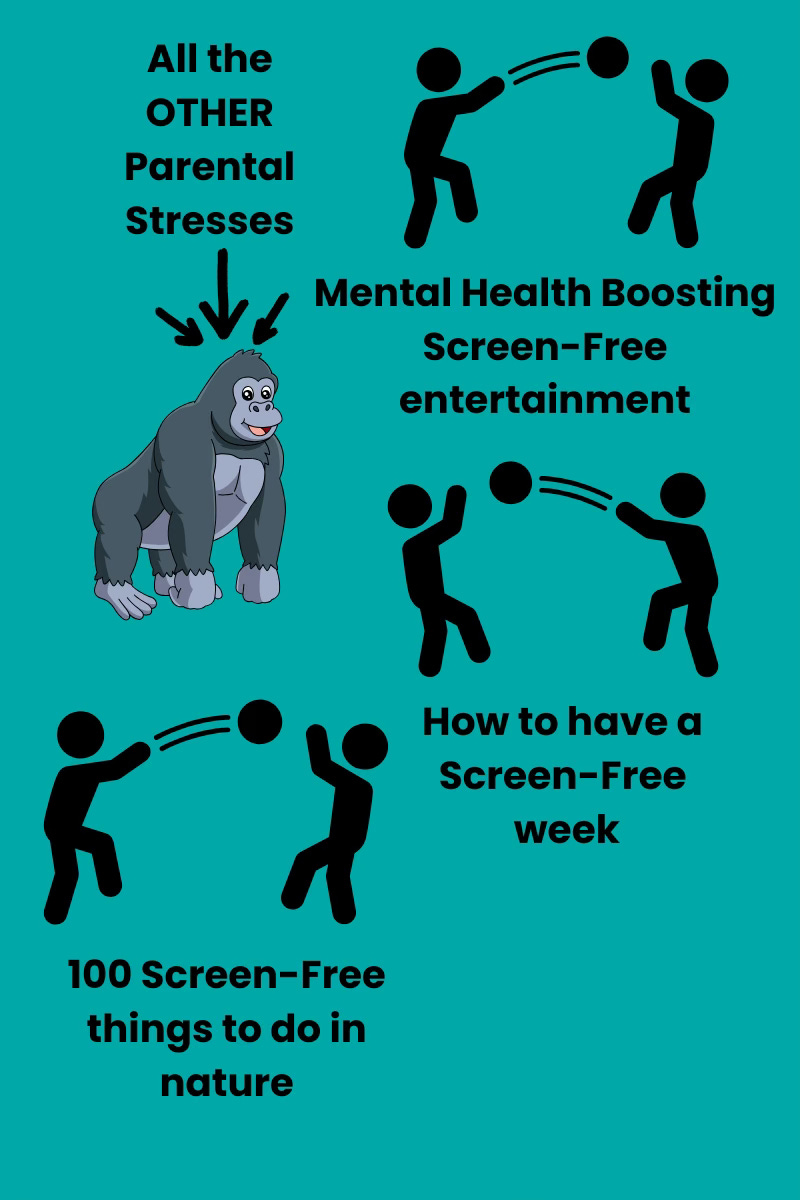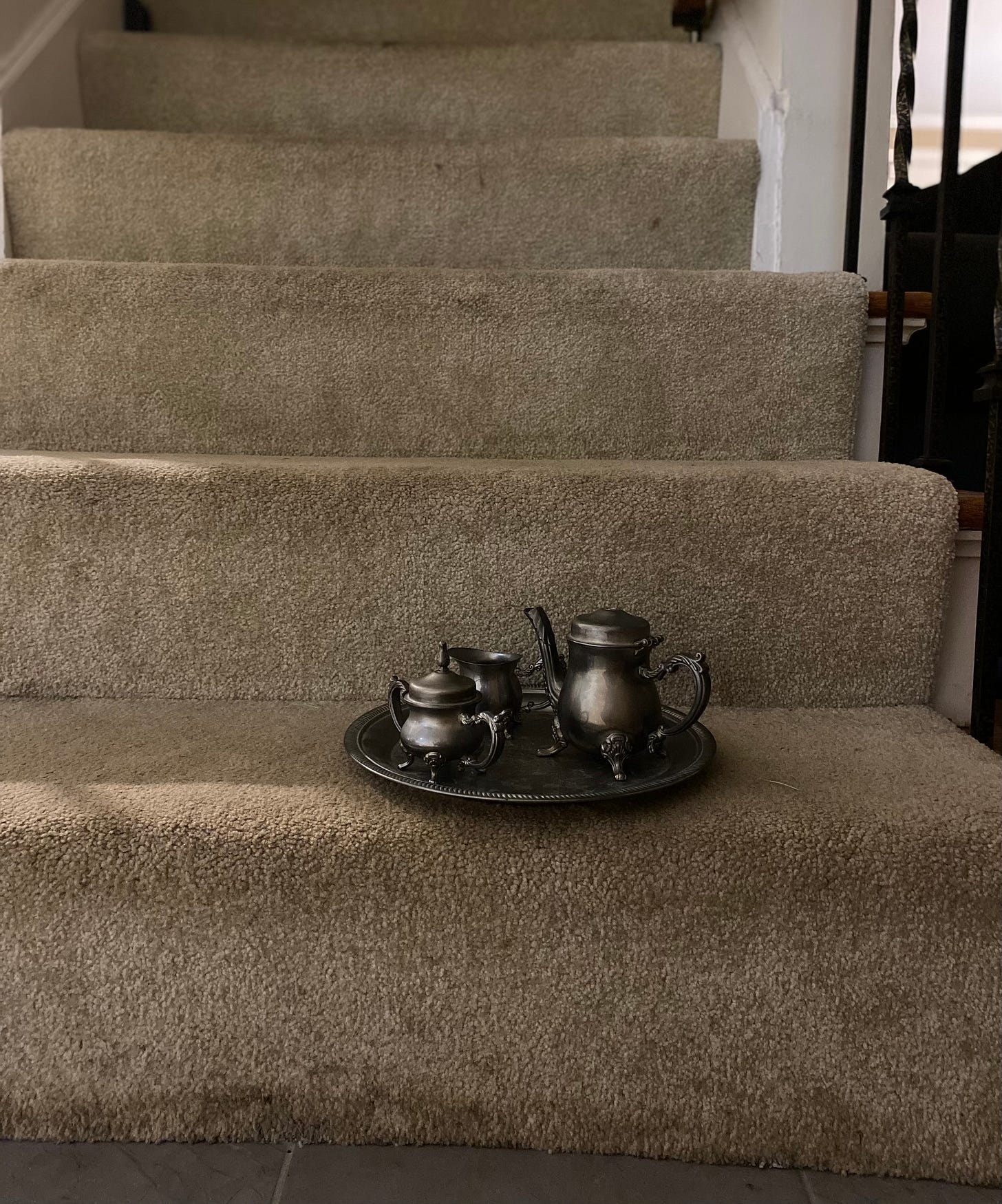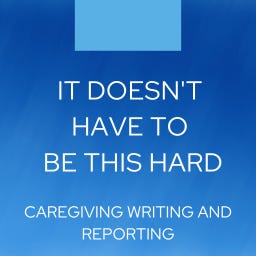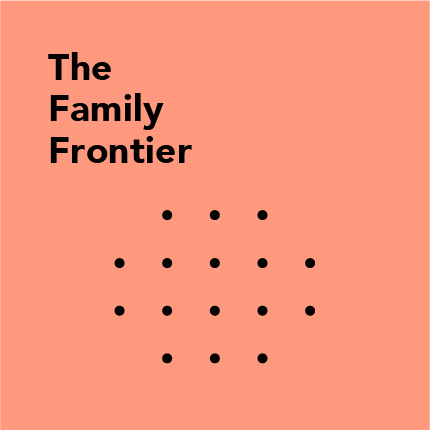I was searching for weapons on the internet with my child. And there it was, the label—"screen-free entertainment”.
Perhaps some context?
We were looking for a toy weapon to complete a Halloween costume. And right there was the sales pitch—this toy is not a screen! We didn’t end up buying this exemplar of screen-free entertainment. Instead, we used a stick with some masking tape. My kid tried to join the toy manufacturer and sell it to me. “Yeah, mom, it’s not screens.” It’s not screens. We now live in a world divided into screens and not screens.
This language is everywhere. It’s on marketing for toys, magazines, classes, and then there are the lists. The X number of things to do lists where you insert any number of life circumstances like a rainy day, weekend, on an airplane, in nature without a screen (the last time I checked, you need to make an effort to do something in nature with a screen?). And may I take a moment to point out that parents typically imbibe this information through a screen?
For a phrase with free in the title, we are anything but. We need to pause and talk about how we are talking about screens and by talking about screens and focusing on how to be free of them, we are not talking about other things.
Before readers get prepared to share the research, anecdotes of children on screens or ideas on how to “help” others have less screentime in their family. This essay isn’t about the screens. This essay is about how the discourse is directing our focus and the repercussions of false binaries. This is what I would call a “three steps” back essay; we all come here with our own experiences and practices. You make choices that are right for your family, your needs, and what you value. Whether you are a family with no screens, strict limits, or flexible practices, we all can do with taking a moment and asking—what is going on here? One step back out of your experience, one step back out of your community, and one more for good measure. Let’s consider that there is more than just the screen to see.
I refuse to trivialize the complex choices parents face. These choices involve navigating a rapidly changing digital landscape that can feel confusing, uncertain, and scary. But while making these choices, marketing has swooped in, influencers have influenced, and we have lost sight of the big picture.
Screen-free for all (it’s everywhere)
Is this just a case of modern marketing? Our world today is shaped by keywords in service of the mighty search engine. It’s no big deal, right? Just be a savvy consumer and move on. However, I don’t believe it’s that simple. We need to address the effects of this constant deluge of screen-free marketing being fed to every parent.
Distraction
When you are constantly fed articles, lists of screen-free activities, and sold toys that are screen-free entertainment, you get the message (consciously and unconsciously) that this is where your focus needs to be. It’s all about the screens. This has a similar quality to other behemoths of cultural tyranny—like diet culture. The diet culture playbook loves the word free. Sugar-free, fat-free, free of insert current food component of concern. If we focus on a category of nutrients and work really hard to exorcise it from our lives, we will find ourselves healthy. Because we want to be healthy, right? It’s a focus on the individual and their choices—not anything to do with social determinants of health, genetics, or fat phobia. Focus here—spend a lot of energy, time, and money, and then you don’t need to consider that this is really complicated. We even use similar ideas around screen use as we do with diets like “screen detox”.
Just look here, not there
The famous selective attention experiment, from the research of Daniel Simons and Christopher Chabris, is a great way to understand what’s going on here. Watching a video, you are asked to count how many of the players wearing white, pass the basketball. Go ahead and try it out.
How many passes did you count?
Did you see the gorilla?
Parents, there is a very big, hairy gorilla in the background of the parenting discourse.
The Gorilla
The gorilla represents the reasons we find ourselves struggling with how to approach screens in our families—the sneakier, bigger, more complex questions that don’t fit neatly into a list of activities you can do with your child in your free time.
It’s not just about the screens.
Lack of quality, accessible childcare
Lack of parental leave
Lack of flexibility in workplaces to support families
Over-reliance on the nuclear family to serve all of the needs
Increased isolation from community
Lack of safe community spaces
Lack of family-friendly third spaces
Lack of quality, accessible mental health care
Tech companies run amok
It works out a little like this:
A Seasonal Fervor
This type of marketing and discourse is at a fever pitch during the holidays and the summer. Holiday marketing makes sense in our capitalist society. How do we sell parents presents for their kids? We solve a problem. Screens are a problem. Slap on a statement about “getting kids off screens for hours,” and it’s like catnip for parents. Most of the presents we purchased this Christmas had some kind of argument for how they would “help” us with this challenge; all that was needed was our credit card. The other seasonal pattern where the screen-free language really takes center stage is summer. And here is a fantastic example of ignoring that friendly ape strolling by.
“Summertime and the livin’ is easy”…except if you didn’t get into summer camp
The madness of finding care for your children in the summer is now a well-known rite of passage. While there is still snow on the ground, parents across the country log on, hitting the refresh button on the camp websites to get one of the coveted slots for summer care. Unless, of course, you didn’t set the reminder, or you didn’t know to look for camps two seasons away.
Whether by choice or circumstance, if you don’t send your child to camp, here is a list of screen-free activities for you. You are the camp, and the camp should not be screens.
These lists assume that you:
You have the finances to purchase additional toys, equipment, and supplies
You have the time to supervise and support these activities
You have the time to take children to enriching environments
You have access to safe, enriching environments.
You are physically able to support your child in these activities and environments
Your child does not have additional needs that would require extra support for said activities
Instead of supporting families in finding affordable, accessible summer care and increasing kid-friendly third spaces, you can have lists, reels, and stuff to buy.
But this is what good parents do, right?
No matter the season, you start to see patterns in the activities and products that are labeled screen-free, and then you can put together what they symbolize. Screen-free is no longer a simple marketing ploy or a category of content; it means something else. It means you are a certain type of parent—a “good parent”. These are all assumptions aimed at individuals. No consideration of how society, culture, and systems might be playing a role here.
To screen or not to screen…that is not THE question
In my house, we have a joke that whenever something bananas happens (which occurs with great frequency), my husband and I say, “Well, at least they are not on screens.” Let me share with you some “screen-free” activities from my household to yours.
Stair decorating (so our parents will break a leg). This is includes items of all shapes and sizes, sometimes with camouflage elements.
Or maxi-pad wallpaper. You don’t need tape or glue!
Additional activities not pictured—attempted sibling murder, sibling haircuts, MUD, and sensory cheese puff immersion trampoline jumping.
If they are not on screens, it must be good. False binaries make me itch. It feels that so much of parenting right now falls into two categories—the screens stuff and the not screens stuff.
I am tired of the statements that we accept around parents’ use of technology with kids:
They are lazy and want an easy break
They just don’t care, so they give their kid a screen
They just can’t say “no”
They are weak
They are uninformed
I think that these judgements are lazy. Instead of thinking about the bigger issues, we are happy to label what we see as a flaw as problem within the individual.
I believe parents care very much; they care so much, and they are exhausted. And maybe I am wrong, maybe they are picking something easy, but I am willing to bet it is because everything else is just so damn hard.
In the name of freedom…
How do we free ourselves from the “screen-free” binary? Take three steps back again. As I said in the beginning, this is not about the screens. You could insert any number of parenting topics that are passionately debated online. It could be about how to feed your kids, how to talk to them, how to educate them, how to support their future, and so on. And these things are the stuff of parenthood, they are a part of the job.
We love our kids. We want to do well by them. There are a lot of choices to be made. This is not to shame anyone in the choices they make for their family.
Purchase the things that serve your family’s needs. Crowdsource for creative ideas when you are just so tired, and the only kid activity you can think of is coloring (which seriously lasts like 3 minutes), but let’s also remember to look up and see that gorilla.
See the Gorilla
I am going to use another popular parent-oriented metaphor to say it another way.
“Put Your Oxygen Mask on First.”
Yes, we must receive oxygen so we don’t pass out and are ultimately useless to help our loved ones. This makes a lot of sense. But what is missing in this statement? It focuses on the actions of the individual. How did the oxygen mask get there in the first place? The makers of the airplane put it there because of the potential risk to passengers if it wasn’t. It was put in place well before the individual sat down.
How we care for our children and others is complicated. And the topic of care is timeless; it is always present, and it is always needed, no matter what administration or parenting trends we find ourselves in the midst of. And it’s not solely between a parent and a child. It is a complex, living, breathing web of systems. It is so much bigger than a list of screen-free activities. Don’t let anyone ever pretend it is.
See the gorilla.
Ways to keep an eye on the gorilla
For excellent reporting and writing on care:














Every word of this is PURE GOLD! Nailed it once again!! And I LOVE your graphics! ❤️
It's like the marketing for things that claim to bring calm and order to "busy moms" -- umm, does this purchase come *with* time, space, and support?!?